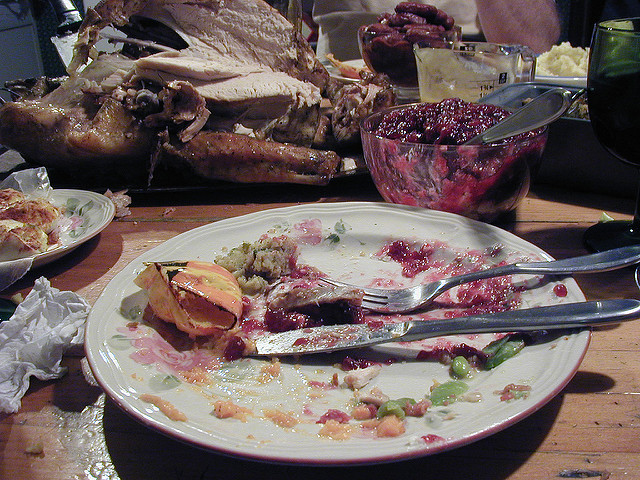If you follow the Christian calendar, this is the final call for the season of Advent, of waiting for God’s appearance. It comes about as we prepare to celebrate the birth of sweet baby Jesus in the manger, with a belief that God’s presence will return to earth.
This is perhaps my favorite of the theological concepts. Easter is the holiday of “redemption” but I find God’s action of taking human form far more redeeming to humankind. Surely, if God thought to don a suit of flesh and blood, we shouldn’t feel the shame in our shrouds. It’s been a long journey for me to reclaim this sense that our humanness is good, and nothing has helped me more than unrolling a yoga mat. That’s where I have strict orders to feel, to move, to be in this body previously declared as my foe.
Our bodies and our humanness were part of the original design, “and God saw that it was good.” The seeking of God – the less religious might call it Love or something less likely to invoke church trauma – is, I believe, a basic part of our human nature. The historian Yuval Noah Harari writes in Sapiens that our species actually thrived beyond the capacity of other sapiens because of the evolved ability to tell a story. This quest for meaning and connection allowed us to become the dominating species of this earth, for both our benefit and, sometimes, bringing us to despair. Where can we find this sense of connection with the divine?
In ancient times, both before and during the time of Jesus, we find a belief and a practice of seeking out the divine by looking up – what writer Diana Butler Bass calls “the holy elevator” in her book, Grounded. People would climb the mountains to feel a holy presence, to the point where some mountains were seen as the literal dwelling places of God – and thus a building committee was formed, a capital campaign established, and walls went up for a new temple. People wanted access to the deities, so building a home atop the hill became common practice in many religions. The mountain was the place where humans met the divine. It was where heaven met earth.
Written into the narrative of the Jesus story (among other religious texts) is an arrival of the divine. But this version of divinity doesn’t land atop the mountain: this story begins in the basin, out back in the parking garage. And the divine meeting place doesn’t have gold-drenched altars; this holy collision comes with a sciatic nerve, a pre-frontal cortex, two lungs, a heart, and 10 toes. Being of Middle Eastern descent, I’d guess he arrived with an enviable mop of dark hair.
In the flesh. Covered in the flesh of his mother, the pasty vernix that kept him safe on arrival, that other mammals lick from the skin to allow for easy breathing. This form of divinity required a mix of proteins and carbohydrates and vitamin D and his mother likely fretted about her milk production because she had never nursed before – maybe he even had a tongue tie, we can’t be sure because the Mommy Facebook Groups didn’t exist yet.
There was a group of people 2000 years ago that believed that God would save them from their captive situation, and they believed that this God showed up unable to control his own bladder, because that is the plight of newborn creatures.
With the Jesus story of divine presence on earth, the man walked the known world leaving a trail of divinity that stuck like the glitter from a child’s Christmas craft even after he made an exit, remnants forever stuck to our existence, known to the scripture writers as spirit. Along his way, moving from common carpenter to master spiritual teacher, Jesus keeps pointing out the hidden divinity in all humans he meets along the way. His calls for peacemaking and loving neighbor aren’t just because the world works easiest when we’re all nice: it’s because he knows all people begin with a divine spark and get embedded in this earth with a body. Sometimes a covering of skin and opposing political opinions make it difficult to see that God makes a home in humans, not just the mountains.
Among the million and one things that Jesus did showing up on earth, here’s the one that brings me to tears every time: this divine appearance means we no longer have to climb mountains.
We are the mountain.
You are the mountain.
The first yoga pose I learned to teach was Tadasana: mountain pose. You stand (or even sit) with the base of your body firmly rooted in the earth, growing and stretching up toward the heavens. You feel supported with the earth below you but you feel the spaciousness of your height. Turning your palms forward will gently rotate the shoulder blades, giving a sense of openness of the heart. If you close your eyes and draw your attention to it, you can feel the earth holding you down while heaven lifts you up. You’re connected to both places.
You are the mountain. You, your body, becomes the place where heaven and earth meet.
No, you are not God. You bear God. You reveal God. Every day is a new opportunity to imitate our maiden Mary in miniature ways, allowing something that began with God’s breath to move through our bodies and into the world.
We no longer have to go to the mountain to know the divine. God made a home here, among us.
The Life-Light was the real thing:
Every person entering Life
he brings into Light.
He was in the world,
the world was there through him,
and yet the world didn’t even notice.
He came to his own people,
but they didn’t want him.
But whoever did want him,
who believed he was who he claimed
and would do what he said,
He made to be their true selves,
their child-of-God selves.
These are the God-begotten,
not blood-begotten,
not flesh-begotten,
not sex-begotten.The Word became flesh and blood,
and moved into the neighborhood.
We saw the glory with our own eyes,
the one-of-a-kind glory,
like Father, like Son,
Generous inside and out,
true from start to finish.John 1:9-14 (The Message)


